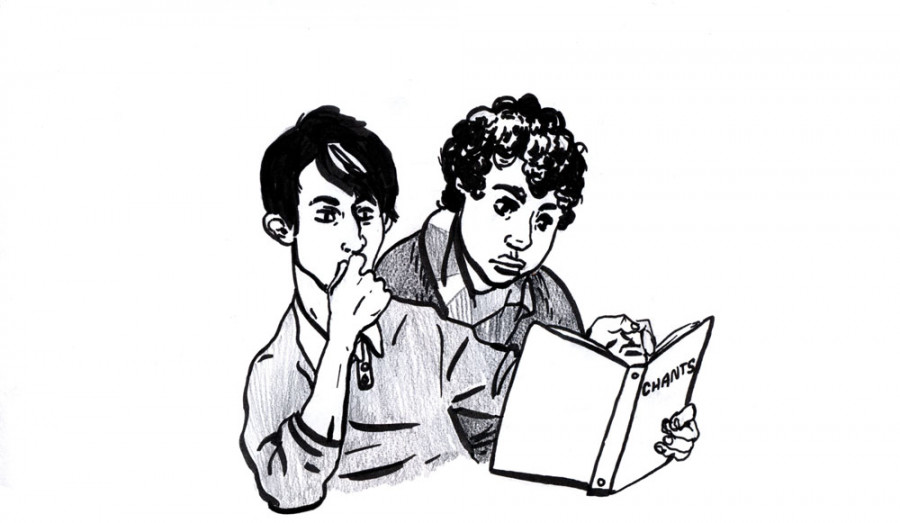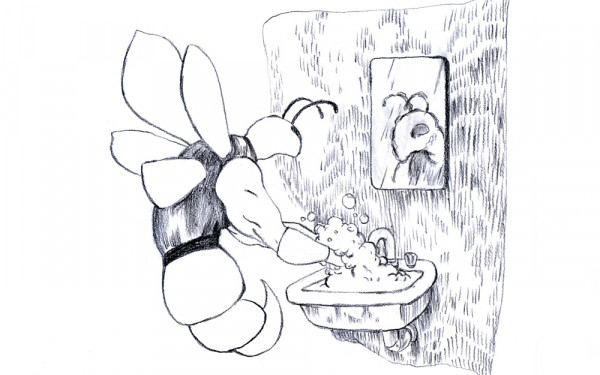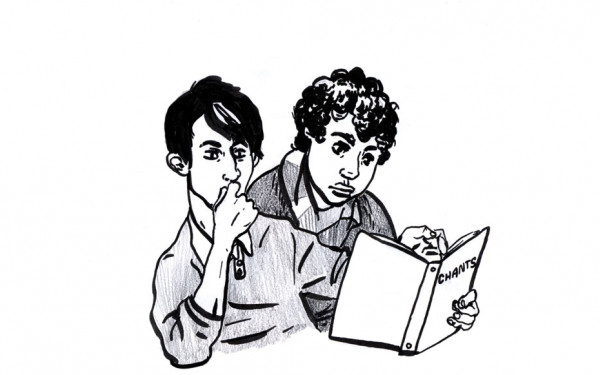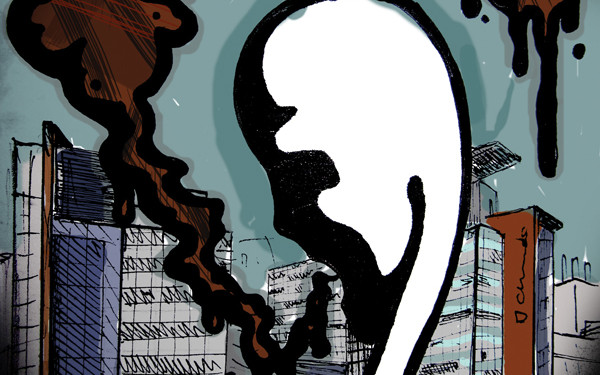ECA Speaks Out Against Disrespectful Chants
Motion Passed by Student Association Recognizes “Crude and Sexually Explicit Nature” of 14 Chants
For an update on this story click here.
Less than a month after McMaster University suspended a student group over “sexist, violent and degrading material” in a songbook, Concordia’s Engineering and Computer Science Association took a similar stance on certain engineering chants they consider disrespectful and distasteful.
The student association’s council recognized that habits and traditions exist within engineering and computer science societies that are of a “crude and sexually explicit nature” and dissociated itself from several cheers at a meeting on Feb. 10.
The motion to do so was brought forward by Katherine Soad Bellini, president of Concordia’s chapter of the National Society of Black Engineers; Melissa Nielsen, president of Women in Engineering at Concordia; and Keena Trowell, co-president of the university’s chapter of Engineers Without Borders.
It was also supported by the Centre for Gender Advocacy, the Concordia Student Union and the CSU Student Advocacy Centre.
“Silence is consent,” said Bellini. “So I’ve tried to voice my opinion this year and realized that the only way to make a valid change is to bring a motion forward.”
The resolution bans 14 chants and forbids any other chants and materials of the same nature from all events hosted by the ECA or any of its 12 constituent student societies.
“We’ve planted the seeds for a more inclusive atmosphere, which means that more people will participate and more people will feel engaged,” said Trowell.
Council condemned these chants for implying, depicting, promoting or glorifying non-consensual sexual and other illicit acts, such as “rape, sexual assault, molestation, necrophilia, pedophilia, homophobia and general degradation, belittlement and disrespecting females and other minorities.”
“The songs that are mentioned in this motion are songs that are not particular to Concordia,” said ECA President Antonin Picou. “They’re engineering songs that have been sung for quite a while.”
It is not known whether Concordia has ever had printed booklets of these chants, but a PDF has been electronically distributed to students in the past.
“The ECA, never once from my knowledge, has had a proactive role in the promotion of these songs,” said Hao Yin, a Concordia engineering student and former ECA VP Finance.
According to Nielsen, the chants are sometimes sung during engineering events involving heavy drinking.
“It’s not the drinking in itself that I’m against, it’s just that’s where these songs seem to come up a lot,” said Nielsen.
Before presenting this motion to council, Bellini researched what had happened in other universities that sang similar songs, including the University of British Columbia, Saint Mary’s University and McMaster. She constructed the motion and presented it to different associations at Concordia to inform the university that these songs existed.
“By informing them prior to presenting the motion, I thought it would be fair and it would give time for everybody to prepare for the situation [in terms of], ‘We have a problem, and I’m presenting a solution,’” said Bellini.
The motion was emailed to council members about six hours prior to the council meeting and was voted upon the same evening. According to Picou, students would have liked more time to think about the motion—more time to think about how to implement it and how to go about dealing with the issue.
“The motion should have been handled in a much more democratic way,” said Christopher Morin, president of the Concordia Society of Civil Engineers. “It should have been brought up to talk it over at council.”
“They didn’t word-to-mouth any of us, and we see each other pretty much every day,” said Kyle Arseneau, president of the Concordia University Building Engineering Society.
The motion states that students or participants who sing these banned chants will be given a first warning. Upon a second warning, the person will be removed from the event.
According to Picou, student leaders organizing events will be aware of this resolution and will take part in enforcing the rule.
“The chants don’t represent Concordia University as a whole since Concordia University values civility, equality, respect, non-discrimination and appreciation of diversity,” said Bellini. “That being said, the chants are actually a threat to a safe and civil environment.”
Concordia engineering students are in disagreement when it comes to the details and implementations of the motion.
“There’s no proposed solution,” said Picou. “The motion says, ‘We want to stop this culture; we want to make a culture change,’ but there is no definite [explanation of] how we are going to do it.”
“It’s not a negotiation that’s going on,” says Yin. “If you do it by force, it will always be difficult. You need a progressive implementation.”
The counterargument is that chants, in general, try to be inclusive and seek to promote school spirit. They encourage students to get involved and take part in activities.
“It’s important that the students have a way to relate to each other, especially in engineering,” said Picou. “Songs is one way as long as these songs are promoting respect, consensual sex or promoting equal rights to all.”
Another detail in the debate within the engineering community concerns the ban itself. Some students don’t believe entire songs should have been banned, but rather particular verses.
“We can discuss how to make it better rather than outright banning something,” said Morin.
According to Bellini and Trowell, entire songs must be banned because the songs in their entirety do not promote a culture of safety. They say they did not want to get into a situation where “hairs were being split.”
“Does anybody really want to spend all of their energy sanitizing these songs?” said Trowell.
Alternative solutions have been sought out by ECA students. Anthony Farshchi, a Concordia engineering student, took the initiative to create a Google group to re-invent the lyrics.
“I’d rather see students taking the time to keep the culture instead of just fighting with each other if this should be banned or not,” said Farshchi.
Fourteen students have access and can edit the document, which includes the majority of the banned songs with the vulgar parts highlighted in red. Students highlight in yellow their ideas and once they settle on changes, the proposals will be highlighted in green.
“You’re going to have a chance to make history here,” said Farshchi. “You’re going to have a chance to correct the past.”







_600_375_90_s_c1.jpg)